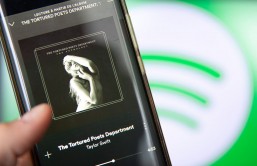As much as £1 billion in benefit fraud has been prevented from being paid to organized-crime groups in the past few months, according to BBC News.
However, before officials spotted the scam, they unwittingly confirmed thousands of stolen identities. Fraudsters took advantage of lenient rules introduced to cope with a surge of universal-credit claims during the coronavirus pandemic.
BBC News has not gotten any response from the Department for Work and Pensions regarding the benefit scams.
Wrong hands
In May 2020, a junior civil servant working with High-Street banks noticed that dozens of universal credit claims had been made asking for money to be paid into the same bank account. Further investigation by authorities identified more than 100,000 fraudulent claims.
Officials admit that they had confirmed thousands of people's identities to the gangs that had stolen them and passed on their National Insurance numbers.
Also Read: Man Calls Police to Confess to a Murder that Remains Unsolved for 25 years
The Department for Work and Pensions wants to write to those whose personal data had been compromised. However, BBC News has learned it is struggling to identify many of them and is wary of sending out letters to last known addresses in case they end up with the wrong person, exacerbating the data breach.
Identity checks
Claimants whose identities have been stolen can face problems, as it can take months before their accurate benefits are paid. There are currently 5.7 million people who receive universal credit, almost double the figure of March 2020.
To cope with the sudden surge, identity checks were processed online instead of face-to-face, and information such as the cost of rent and whether someone had been self-employed was taken on trust. Criminal gangs have attacked several government COVID-19 plans.
The DWP officials have asked the Treasury for £200 million for more than three years in this spending round, calculating it would enable it to prevent such mass scams and save taxpayers about £500 million every year.
It is estimated that more than a million claims for universal credit have still to be properly checked, with additional rising concerns thousands of people have claimed the benefit without declaring that they had received government grants to help the self-employed. But the Treasury has turned down the request.
How to avoid identity theft and identity fraud
There are some simple steps that you can take to protect yourself. If you receive an unsolicited email or phone calls from what appears to be your bank or building society asking for your security details, never reveal your full password, account number, or login details.
Remember that a bank will never ask for your PIN or a whole security number or password. The bank will also never ask it over the phone or through email.
It would help if you also created strong passwords for use online and do not use the same one for every website you log in to. If you have problems keeping up with your passwords, you can use a password manager.
As for your internet-connected devices, make sure to protect them with up-to-date security software and make sure that you install all officials and security fixes on the devices. Do not leave things like bills lying around for others to see.
Related Article: Protecting Yourself Against Online Fraud Amid COVID-19 - and How Investigation Agencies Can Help








